Professional Manufacturer of Biomagnetic Beads

DNA Extraction Kit
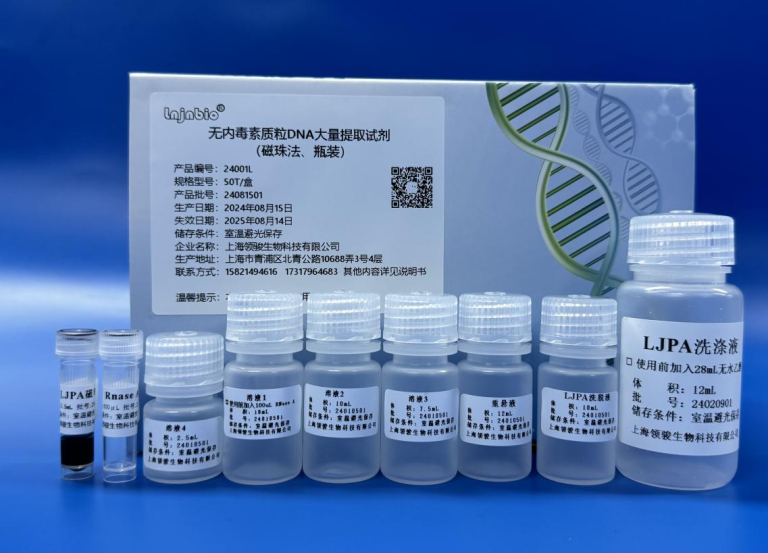
Endotoxin-free Plasmid DNA Extraction Kit for Large-volume Samples 241001L
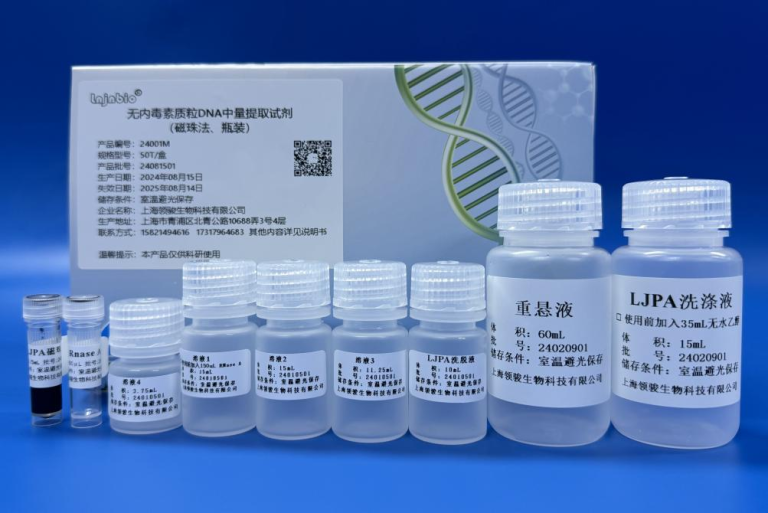
Endotoxin-free Plasmid DNA Extraction Kit for Middle-volume Samples 241001M
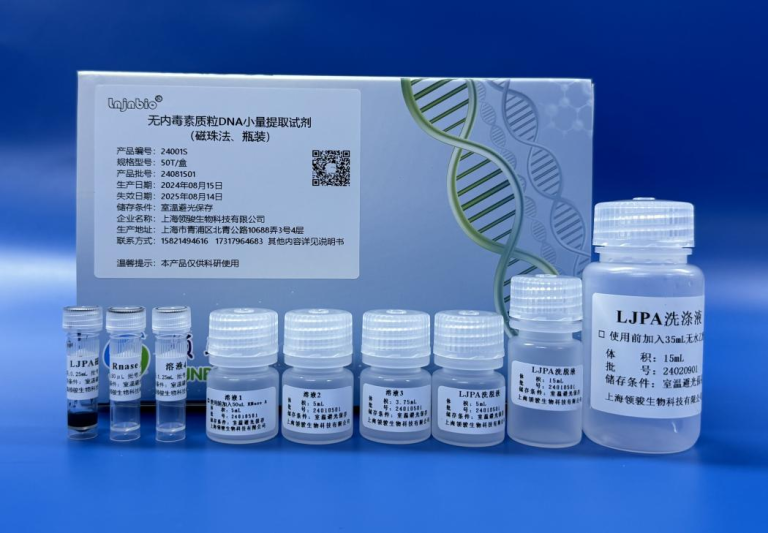
Endotoxin-free Plasmid DNA Extraction Kit for Small-volume Samples 241001S
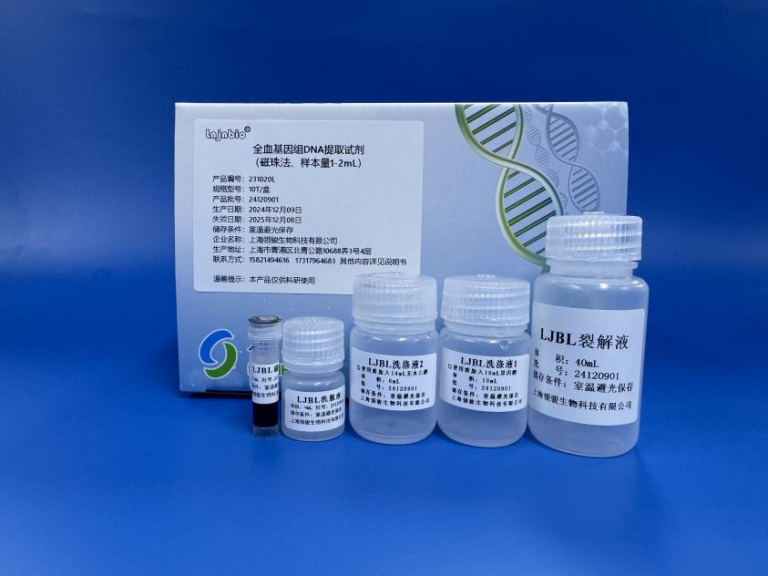
Lnjnbio Magnetic Beads for Whole Blood Genomic DNA Extraction Kit 231020L
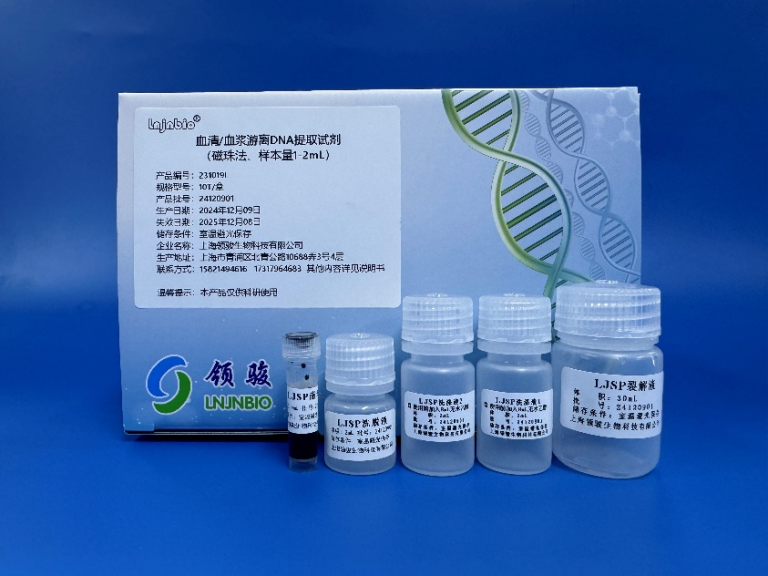
Lnjnbio Magnetic Beads for Serum/Plasma Free DNA Extraction Kit 231019L
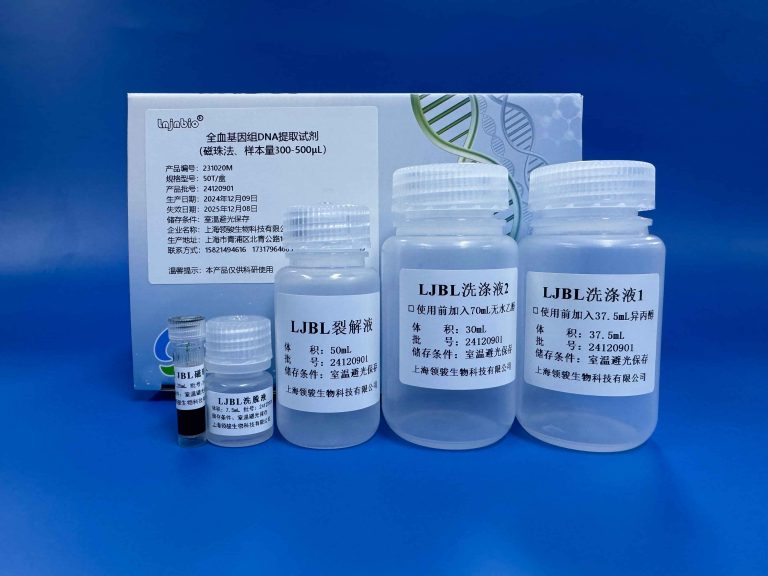
Lnjnbio Magnetic Beads for Whole Blood Genomic DNA Extraction Kit 231020M
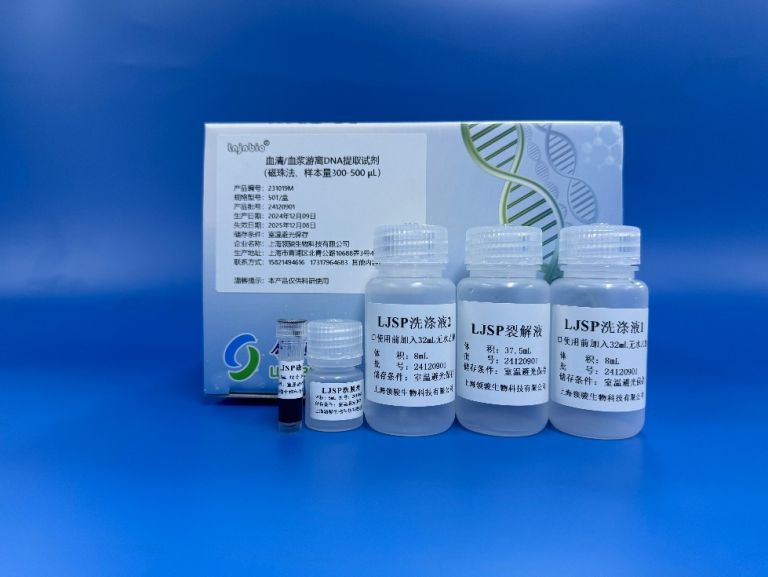
Lnjnbio Magnetic Beads for Serum/Plasma Free DNA Extraction Kit 231019M
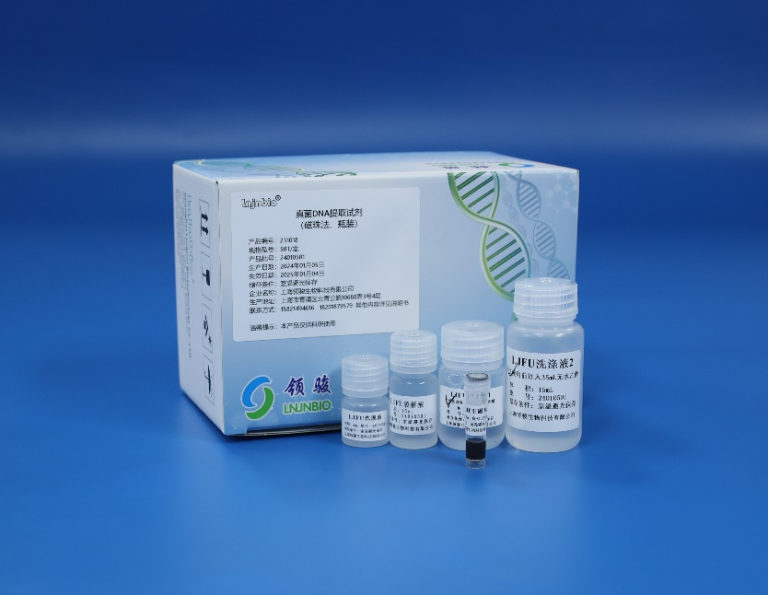
Lnjnbio Magnetic Beads for Fungal DNA Extraction Kit 231018
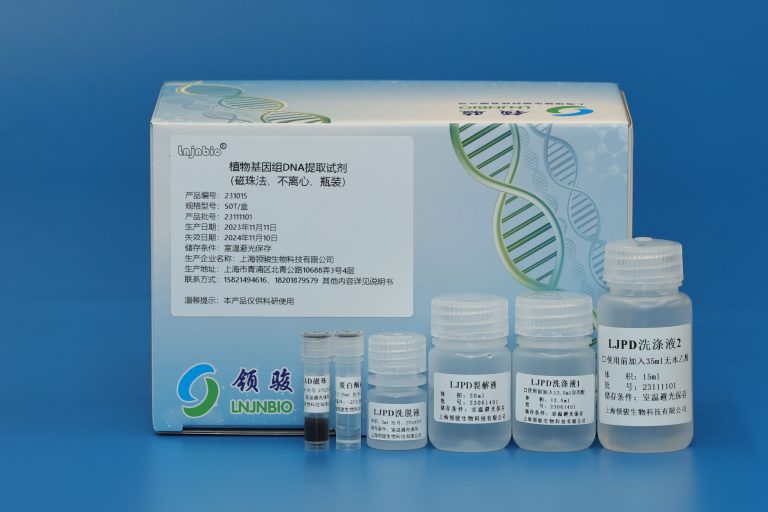
Lnjnbio Magnetic Beads for Plant Genomic DNA Extraction Kit 231015
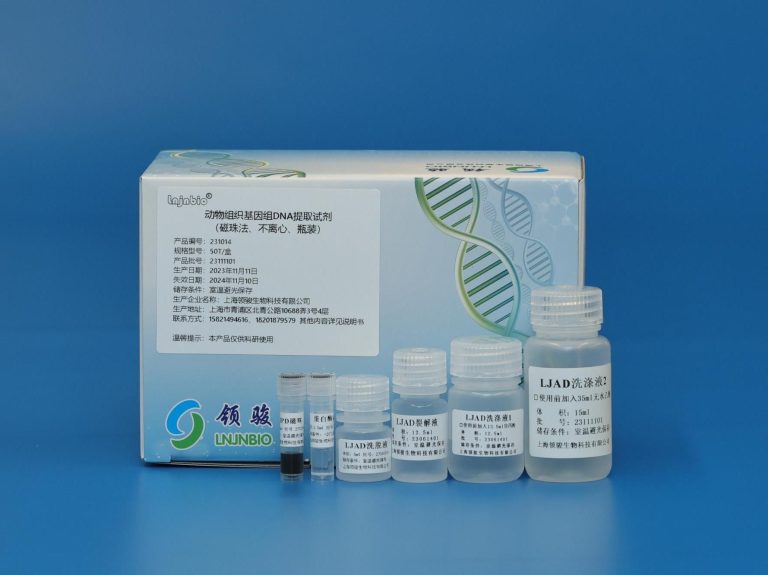
Lnjnbio Magnetic Beads for Animal Tissue Genomic DNA Extraction Kit 231014
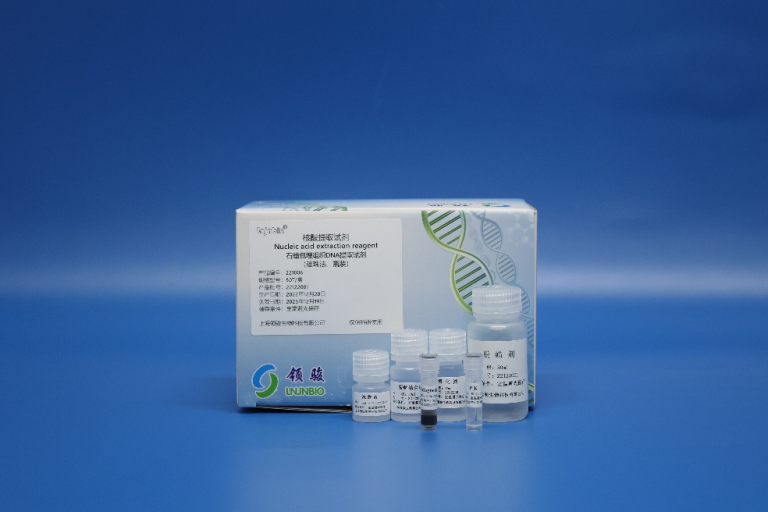
Lnjnbio Magnetic Beads for FFPE Tissue DNA Extraction Kit 221006
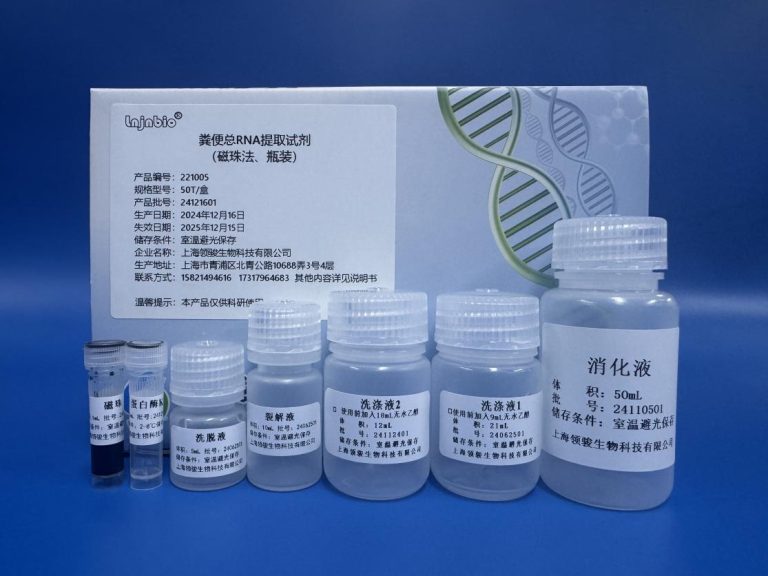
Lnjnbio Magnetic Beads for Stool Total DNA Extraction Kit 221005
Introduction of DNA Extraction DNA Extraction kit
DNA extraction kits are scientific tools designed for efficient and accurate separation of deoxyribonucleic acid (DNA) from various biological samples. It integrates the latest advances in modern biochemistry and molecular biology, and ensures the complete extraction and high purity of DNA through optimized chemical formulas and processes, providing strong support for scientists in the fields of genetic research, disease diagnosis, forensic analysis, etc.
Features and Advantages of DNA Extraction kits
Efficient and fast: using advanced lysis and purification technology, greatly shortening the extraction cycle and improving laboratory work efficiency.
High purity guarantee: unique purification steps effectively remove impurities such as proteins, polysaccharides, lipids, etc., ensuring high purity of DNA, suitable for highly sensitive downstream applications.
Wide applicability: whether it is blood, tissue, cells, or plants, microbial samples, excellent DNA recovery rates can be achieved.
Strong stability: the kit components are stable and can maintain high efficiency even under long-term storage conditions.
Easy operation: the process design is humanized, and high-quality DNA extraction can be completed without complex equipment.
Properties of DNA Extraction kits
DNA extraction kits are mainly composed of lysis buffer, protease, precipitant (such as ethanol), washing solution and dissolution buffer. Lysis buffer and protease work together to quickly break down cell structures and release DNA; precipitants cause DNA to precipitate for easy separation; washing solutions remove residual impurities and improve DNA purity; dissolution buffer is used for the final dissolution of DNA to ensure that it is in an ideal state for subsequent experiments.
Applications of DNA Extraction kits
Molecular biology research: gene cloning, gene expression analysis, genetic variation detection, etc.
Clinical diagnosis: genetic disease screening, infectious disease pathogen detection.
Forensic identification: crime scene DNA analysis, paternity testing.
Agriculture and food science: plant genetic improvement, food safety testing.
Environmental protection: biodiversity research, environmental pollution monitoring.
Supplier Introduction
Shanghai Lingjun Biotechnology Co., Ltd. was established in 2016 and is a professional manufacturer of biomagnetic materials and nucleic acid extraction kits.
We have rich experience in nucleic acid extraction and purification, protein purification, cell separation, chemiluminescence and other technical fields.
Our products are widely used in many fields, such as medical testing, genetic testing, university research, genetic breeding, and so on. We not only provide products but also can undertake OEM, ODM, and other needs. If you have related needs, please feel free to contact us sales01@lingjunbio.com.
FAQs for DNA Extraction kits
Q: Are DNA extraction kits suitable for all types of samples?
A: Although most kits are designed to be widely applicable, specific types of samples (such as polyphenol-rich plant tissues) may require specially optimized kits.
Q: Can the extracted DNA be used directly for PCR amplification?
A: In most cases, DNA obtained using DNA extraction kits can be used directly in molecular biology experiments such as PCR, but care should be taken to avoid any possible inhibitory factor contamination.
Q: How to judge the purity and quality of DNA extraction?
A: UV spectroscopy (A260/A280 ratio) and gel electrophoresis to detect DNA fragment size and integrity are common methods for evaluating DNA purity and quality.
Q: How to avoid contamination during DNA extraction?
A: The laboratory should be kept clean and sterile, use DNase-free disposable consumables, set up negative controls, and strictly distinguish between sample processing areas and DNA operation areas to reduce the risk of contamination.
Q: How to store the extracted DNA for a long time?
A: The extracted DNA should be stored at -20℃ or lower to avoid repeated freezing and thawing to ensure long-term stability.
As a basic tool for molecular biology research, the quality of DNA extraction kits directly affects the accuracy and reliability of scientific research results. We are committed to providing the best quality and most stable DNA extraction solutions to help you go further on the road of genetic exploration. If you have any questions or need further technical support, please feel free to contact us.
